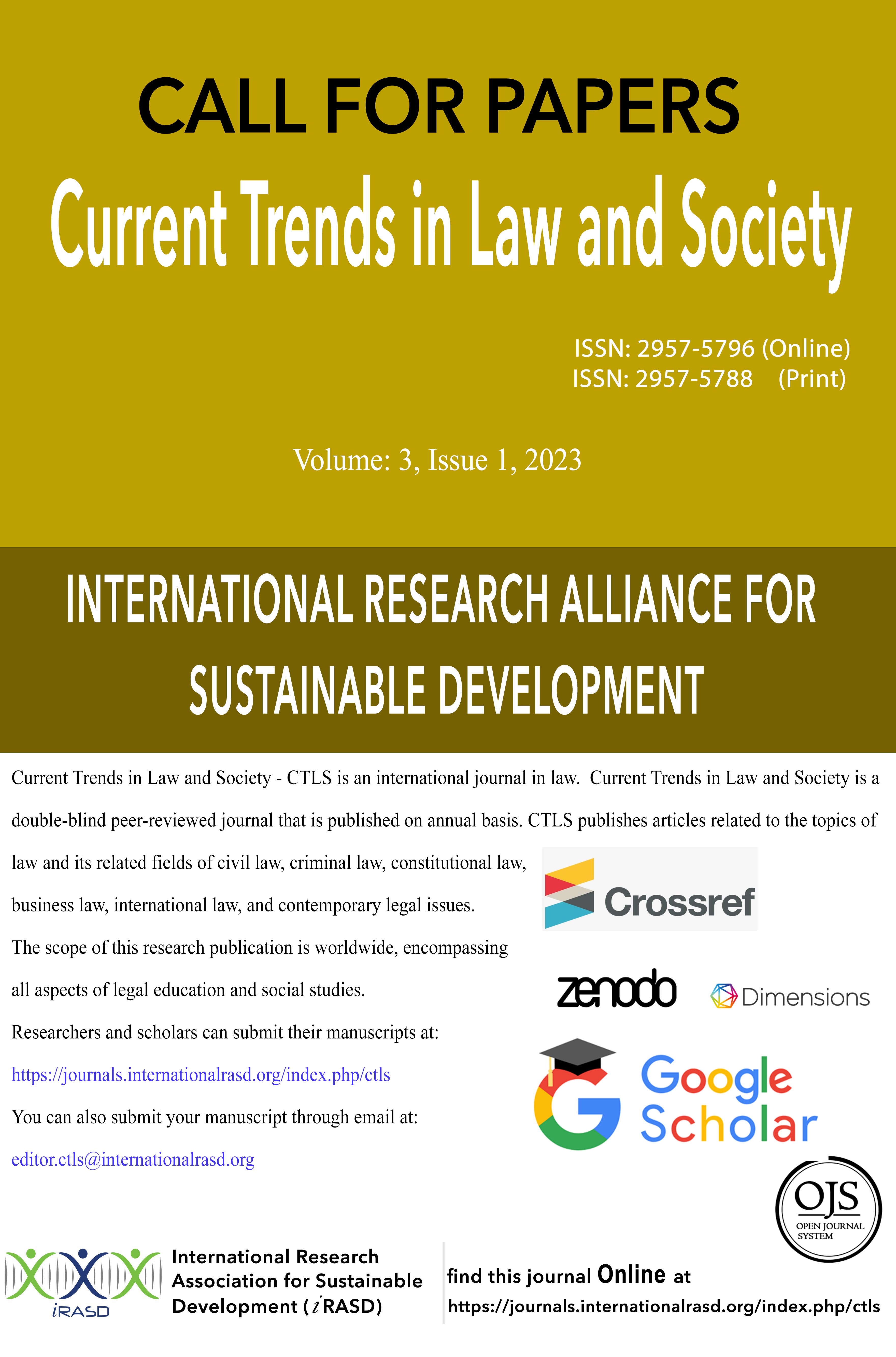The Analysis of Article 184(3) of the Constitution of the Islamic Republic of Pakistan regarding Cases is Pending or Decided by High Courts
DOI:
https://doi.org/10.52131/ctls.2023.0301.0021Keywords:
Original Jurisdiction, Supreme Court of Pakistan, High Courts, Article 184(3), Article 199, Constitution of the Islamic Republic of PakistanAbstract
The legal analysis investigated the scope of Pakistan's Supreme Court's original jurisdiction under Article 184(3) of the Constitution of the Islamic Republic of Pakistan, 1973. It delves into precedents to establish the extraordinary and discretionary nature of this jurisdiction. The study discussed the principles guiding the exercise of jurisdiction when concurrent jurisdiction exists with the High Courts under Article 199. Additionally, it introduces the principle of forum non-conveniens, emphasising the court's discretion in selecting the most suitable venue for a case. This study, which was conducted using the doctrinal legal research method, examined legal precedents in which the Supreme Court declined jurisdiction due to a pending petition in the High Court. The article concludes by asserting the court's inability to challenge or circumvent judgments of high courts under Article 199.
Downloads
Published
Issue
Section
License
Copyright (c) 2023 Khurram Baig, Ali Raza Laghari, Rehman Akhtar, Waqas Ahmad

This work is licensed under a Creative Commons Attribution-NonCommercial 4.0 International License.







